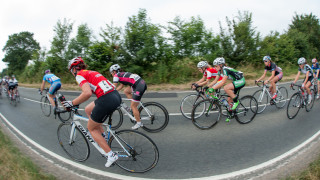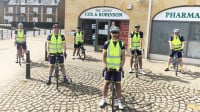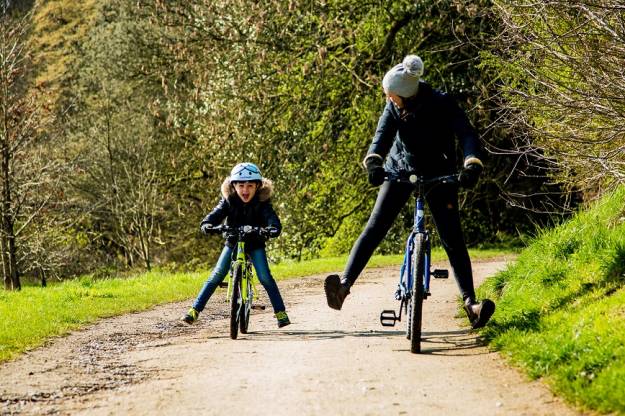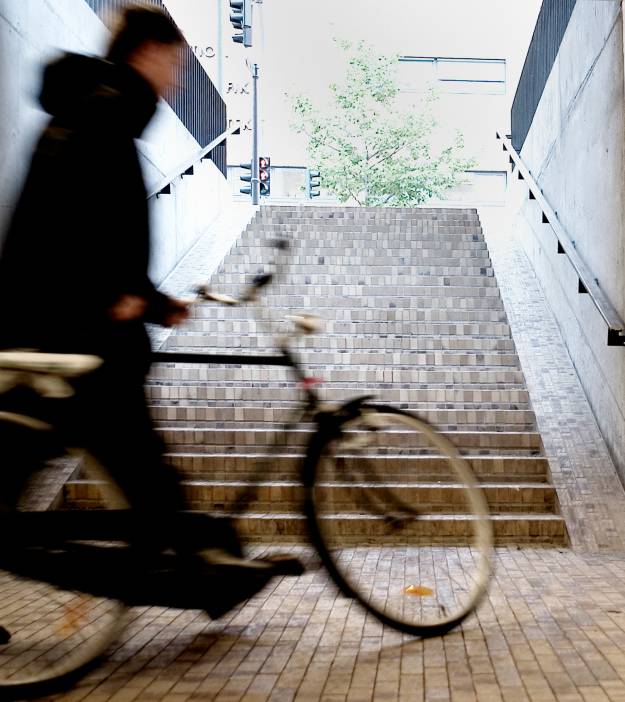Cycling as a sport and leisure activity is booming in Britain. Our riders are having elite level success at the Olympic and Paralympic Games, the Tour de France and the world championships and in Team Sky we have a leading team in the professional peloton.
Despite this, we have a problem with road racing in this country that threatens the development of the next generation of top cyclists. Put simply race organisers in this country face significant obstacles meaning that promising young riders have to travel to mainland Europe for the high quality racing exposure they need.
Securing the future of road racing would be a fitting legacy to the success of the London 2012 Olympic and Paralympic Games and British Cycling has been working hard to Keep Racing on the Road.
Our campaign has sought to address the key challenges:
- Redraft outdated legislation
- Empower volunteer race marshals
- Reduce police charging
Redraft outdated legislation
We have submitted draft regulations to the Department for Transport who are now working on the implementation. The DfT is supportive of the change so now its about getting the new regulations on the statute books.
Cycle racing on the road is governed by the Road Traffic Act 1988 and the Cycle Racing on the Highway Regulations, 1960. Race organisers and cycle clubs find this outdated legislation difficult to deal with because it is overly complex, arbitrary and appears to allow cycle racing only grudgingly.
The discretionary nature of the legislation leads to large disparities in how road races are treated between regions and over time. Police forces also have the ability to impose any further conditions they deem appropriate which can place arbitrary and unreasonable demands on a race organiser meaning that it allows forces that are not supportive of road racing to effectively "condition" racing off the road.
The legislation needs to be made fit for purpose and start from the presumption that races will be authorised provided they follow a set of clear guidelines. The Department for Transport is, from a policy perspective, in agreement with the changes we've proposed and our task now is to get this work prioritised.
British Cycling has received valuable Parliamentary support on this issue and others from British Cycling member Ian Austin MP and Minister for Sport Hugh Robertson.
Empower volunteer race marshals
British Cycling is now working with regional police forces to roll out marshal training and equipment. Download story about our new road marshalling programme
Police resources would be saved and the task of road race organisers would be much more straightforward if volunteer marshals were legally empowered to slow and briefly stop traffic to let a cycle race pass junctions. Currently it is a legal grey area, with marshals effectively “advising” traffic to stop. There are two main options:
(i) Traffic signs for volunteer marshals
British Cycling continues to pilot the signage scheme that empowers volunteer marshals with the ability to halt traffic at junctions during cycle road races.
Developed between the DfT and British Cycling, the ‘Stop – Cycle Race’ signs give marshals the legal authority and confidence to do their job and is seen as one of the key developments to help protect the future of road racing in this country and secure an Olympic legacy for cycling.
Each marshal must undertake a training session on positioning and timing before they are allowed to marshal at races with the sign. The scheme has been piloted in Oxfordshire, Thames Valley, Bedfordshire and Essex and we continue to receive positive feedback from the trained marshals, race organisers, riders and police. We look forward to engaging with other constabularies with a view to rolling out the signs more widely.
(ii) Expand the use of the Community Safety Accreditation Scheme (CSAS)
This is the same scheme through which the police delegate some of their powers to Community Safety Officers and by which they can delegate powers to stop and control traffic to suitably trained individuals. British Cycling has piloted this method in Essex and Wales and it works.
The weakness is that the legislation governing CSAS requires the marshal to be employed and furthermore about half of police forces do not currently operate CSAS. Potential solutions we have explored with the Home Office are (a) relaxing the employment condition to enable race marshals to benefit from the delegated powers and (b) making the powers applicable in all areas of the UK. All of which would require amending the Police Reform Act 2002.
Reduce police charging
High and inconsistent charges for police presence at some higher level cycle races have placed a costly burden on race organisers. British Cycling has worked hard to address this problem and made significant progress.
The Department for Culture Media and Sport (DCMS) took this issue up for us and British Cycling was the only national governing body to make representations to the senior police officers redrafting the Association of Chief Police Officers (ACPO) guidance for police charging.
We worked closely with the DCMS and ACPO on the redrafting of sections of the guidance and the new version is now being applied by police forces around the country - Download PDF Copy
The guidance includes specific references to cycle racing and makes it clear that the majority of cycle races - volunteer supported, largely non-commercial - should not attract anything near to full cost recovery. This should enable race organisers who have been hit with high levels of cost recovery in the past to put together a persuasive case that they should be charged less than 50% of the policing costs. The guidance also states that many road races should attract no charge at all.
The guidance is now much clearer on the fact that non-commercial events need to be considered in the context of community policing and includes a section establishing that most cycle races are non-commercial events that generate revenue only to cover organisational costs are therefore should not be treated in the same way as commercial events.













